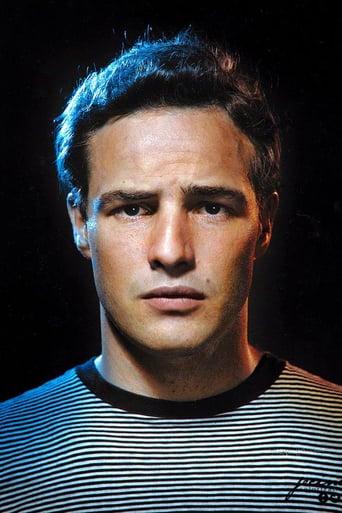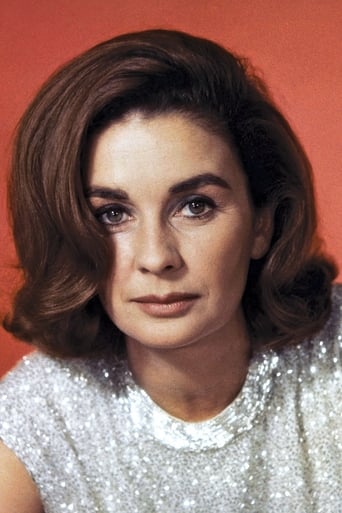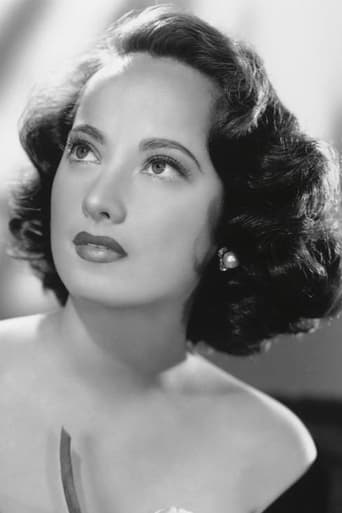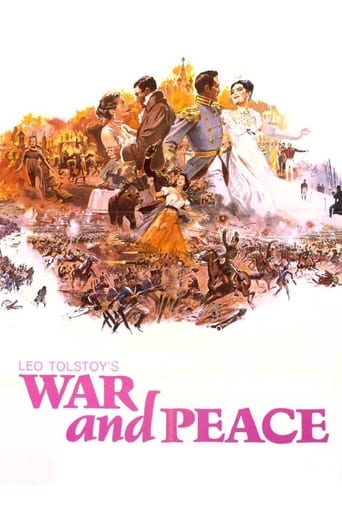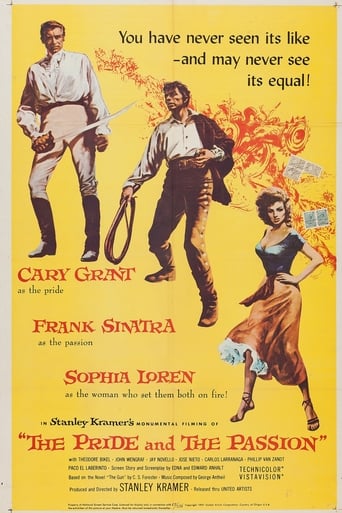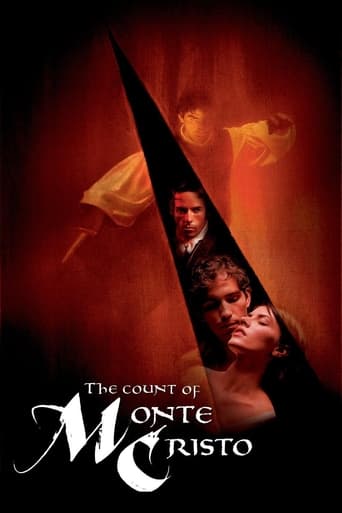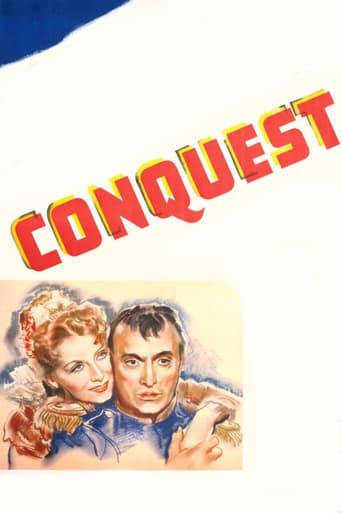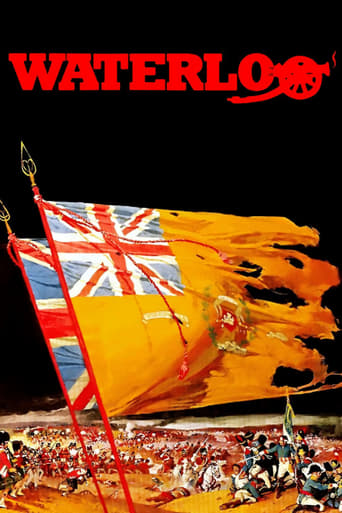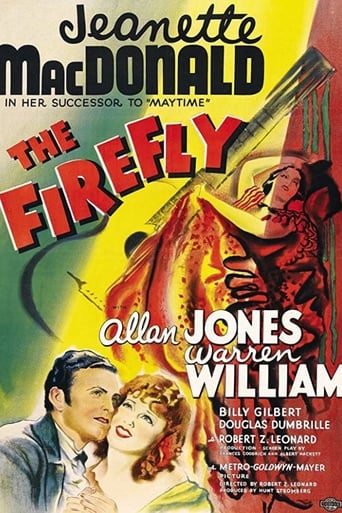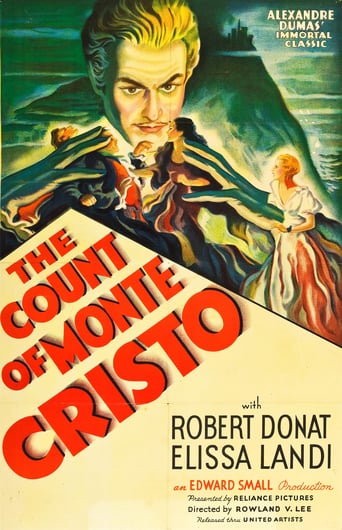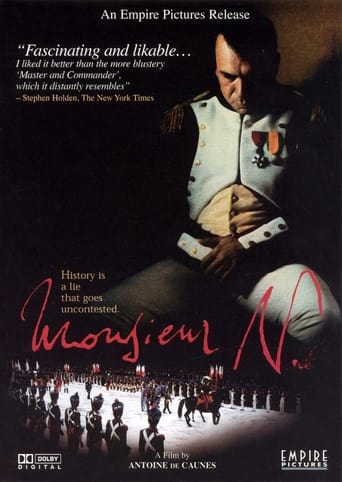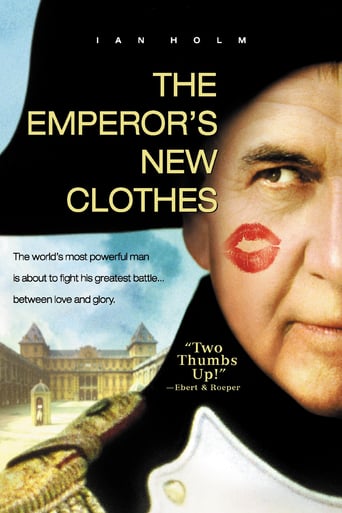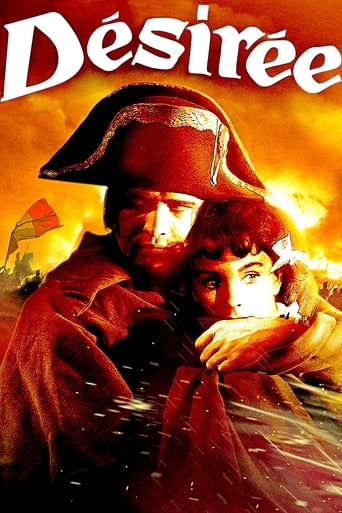
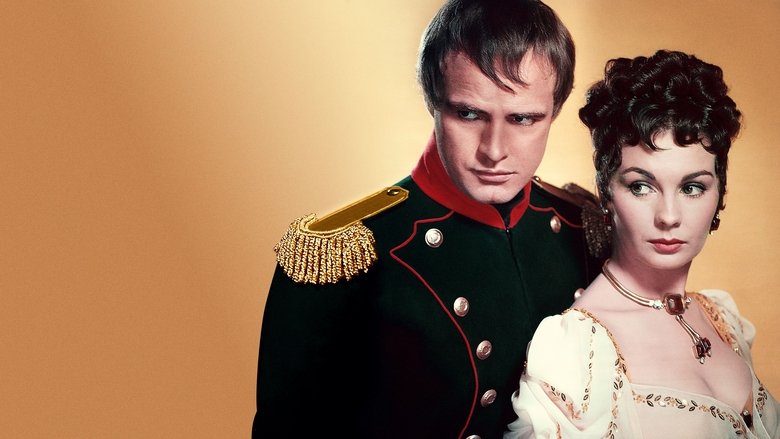
Désirée (1954)
In Marseilles, France in 1794, Desiree Clary, a young millinery clerk, becomes infatuated with Napoleon Bonaparte, but winds up wedding Genaral Jean-Baptiste Berandotte, an aid to Napoleon who later joins the forces that bring about the Emperor's downfall. Josephine Beauharnais, a worldly courtesan marries Napoleon and becomes Empress of France, but is then cast aside by her spouse when she proves unable to produce an heir to the throne.
Watch Trailer
Cast
Similar titles
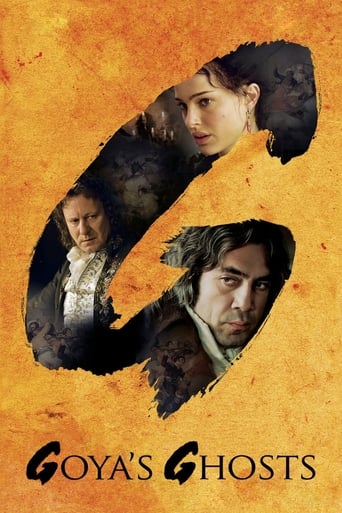
Reviews
Sorry, this movie sucks
Really Surprised!
I wanted to but couldn't!
Funny, strange, confrontational and subversive, this is one of the most interesting experiences you'll have at the cinema this year.
I've seen this film a number times over the years. Now, it's available at YouTube. Previously, I assumed Desiree was a purely fictitious character. Boy, was I wrong! There's a lengthy article on her on the web. Jean-Baptiste Bernadette also was a real person, who did marry Desiree. In the middle of the Napoleonic wars, he did switch from being a marshal under Napoleon to the heir apparent for the Swedish crown! Most of the things Desiree is pictured doing are reasonably historically accurate, aside from accepting Napoleon's sword as a symbol of his surrender to the allies. Actually, the real Desiree initially was engaged to Napoleon's brother, Joseph, who then switched to marrying her sister, opening the door for Napoleon to become engaged to Desiree. He rather soon broke this engagement when he found Josephine, who provided him with several advantages, but could not produce an heir, despite having 2 children from her guillotined husband. Interestingly, Josephine's granddaughter later married Desiree's son, who was king of Sweden!..... One problem with this screenplay is that Desiree is not really a very interesting person, aside from her beauty and connection with Napoleon and Jean Bernadotte. A number of reviewers complained that Jean Simmons, as Desiree, was too often whiny, or infantile. Well, it happens that this was the way the real Desiree was. So, I don't think we can fault Jean......Several reviewers criticize Marlon Brando's portrayal of Napoleon. Marlon rather looked like Napoleon. We was 5'9" compared to Napoleon's 5'7". But Napoleon actually was a bit taller than the average Frenchman at that time, at 5'5". But , some of his guards were considerably taller, making him look short. Whether Napoleon was deliberate, as Brando portrayed him, or quick and flashy, I don't know......Merle Oberon makes a beautiful Josephine, who doesn't have a lot of screen time.. Michael Rennie makes a tall Jean Bernadette, who was considerably older than Desiree. There seemed to be little passion between them.....The screenplay is mostly an indoor affair, with no direct contact with soldiers in battle. In one scene, Napoleon is ready to begin the Russian campaign. In the next scene, he's back home, defeated. The film lacks any real action or passion. But, I do commend it on it's relatively strong historical accuracy , being based on the novel "Desiree".
Marlon Brando proved his stature as one of the greatest movie actors over and over again - from "A Streetcar Named Desire" through "On the Water Front" all the way to "The Godfather." In the light of his marvelous performance as Napoleon I. in "Desiree," it seems surprising that this movie doesn't quite get the same attention as those others he starred in. "Desiree" seems even more underrated when you take into account the great acting of Jean Simmons (Desiree Clary), Merle Oberon (Josephine Beauharnais), and Michael Rennie (Jean-Baptiste Bernadotte). All four main actors deliver powerful performances giving the viewer a real sense of the powerful personalities they embody.The story is that of Napoleon, however, seen through the eyes of his first fiancée, Desiree Clary, daughter of a wealthy Marseilles merchant, whom Napoleon leaves to wed Josephine Beauharnais. The Beauharnais's political connections facilitate the military leader's rise to political power, but Napoleon dumps her for Marie Luise of Austria when it turns out that Josephine is unable to bear children.Meanwhile, Desiree marries Jean-Baptiste Bernadotte, one of Napoleons most distinguished generals. Thus, Desiree remains in Napoleon's orbit, and the Emperor repeatedly distinguishes her amongst the ladies of his court, making it clear that his love for her never fully died out. When the Swedish parliament offers her throne to her husband, Desiree follows Bernadotte to his new country. But since she's unable to adapt to the stiff protocol of the Swedish court, Desiree returns to France, just in time to see Napoleon make the tragic mistake of leading the "grande armee" to Russia.Marlon Brando masterfully conveys the image of a charismatic leader who believes himself chosen by destiny to fulfill a task of truly historic proportions. In every scene, Brando's Napoleon commands attention and obedience by way of natural authority. From the moment he enters the Clarys' family parlor and seizes control of the evening conversation all the way through his bitter discussions with Bernadotte about the latter's acceptance of the Swedish crown to his acknowledgment of defeat after the Battle of Waterloo Brando shows us a dignified, determined, and at times dangerous leader.Just one - hilariously funny - example: There is a scene in which the court is rehearsing for the 1804 coronation of Napoleon and Josephine in Notre Dame with the future Emperor not present. Napoleon's sisters refuse to carry Josephine's train and bicker about their brother's not bestowing enough honors and titles upon them. All of a sudden, Brando's voice is heard "May I be of help in this difficult and strategic operation?", and the entire court bows down in deference. As Marlon Brando walks through the ranks of the lickspittles, everything seems in perfect order. He IS the Emperor in the same way that he just IS the godfather. And it's that natural authority that Brando conveys throughout the film.Simmons's Desiree on the other hand is charming. The character is not designed to have the same powerful screen presence though it lends itself to the movie's title but nonetheless Desiree is an interesting character in that she exhibits human growth. The character starts as a naïve, flirtatious teenager infatuated by the "bovarisme" of romantic novels; she's just as overjoyed at commanding the attention of a general as she's heartbroken on finding out that Napoleon is going to marry Josephine. She then moves on to becoming the traditional mother figure as she has a son with Bernadotte; a desirable woman willing and able to bear responsibility, but without any greater intellectual ambition. And she finally reaches a stage of intellectual maturity which enables her to convince the Emperor in a grand, though highly fictionalized scene that it is better to surrender to the allied forces than to shed more blood in a futile attempt to save the bits and pieces of his shattered empire after the Battle of Waterloo. It is this development that is mirrored in Simmons's performance at all stages.Oberon and Rennie as Josephine and Bernadotte are congenial counterparts though their characters have considerably less screen time and are of lesser importance to the plot. Particularly Oberon's air of desolation in the scene in which she speaks with Desiree about Napoleon's decision to marry Marie Louise is impressive. So, too, are the aforesaid discussions between Bernadotte and Napoleon. Brando's Napoleon commands the scene here too, but there is an authentic sense that Rennie's Bernadotte is doggedly refusing to give in to his former commander's demands."Desiree" is an underrated movie, especially given the comparatively low IMDb-rating, which remains mysterious to me. The performance of Brando is outstanding; those of Simmons, Oberon, and Rennie are remarkable as well. It goes without saying that the costumes are lavish and the cinematography impressive. A top movie in the genre of historic drama.
I have commented before on the paucity of American films dealing with the history of Canada and Mexico (our next door neighbors). We are easily receptive to films made here or in the British Commonwealth about the history of England, and then we have a tendency to enjoy films about the history of France. But then it is spotty. Films about Germany deal with it's military history or the Nazis (how many Americans would sit through a film about Goethe or Schiller - a few years back a film about Beethoven appeared, and was not a box office favorite). It gets weaker too when we edge to Scandanavia. Ask how many historic films deal with Sweden (which once was the dominant power in Eastern Europe) I can only recall two historical films made in America: "Queen Christina" and "Desiree". The former showed Greta Garbo (finally playing a Swedish person of importance) as the 17th Century ruler who abdicated in 1655. The latter dealt with French people surrounding one of the world's most fascinating men: Napoleon Bonaparte. But Napoleon was Marlon Brando, and the film followed the career of one of the women in Napoleon's life who ended up not in bed with him but with one of his rivals. Desiree Clary (Jean Simmons) had dated Napoleon when he was a young officer, but his career and ambitions took him away from her. However, she met a rival of Bonaparte, Jean Bernadotte. Bernadotte (who would eventually rise to be one of the Emperor's Marshalls, and a persistent critic, was sent into ambassadorial exile in 1809 to Sweden, taking his wife and son with him. As French Ambassador to Stockholm, he ingratiated himself into the affections of the childless King of Sweden, as well as the people. In 1811, shortly before his death, the King of Sweden made Bernadotte his heir - and the Swedish public acclaimed the decision. It turned out to be very wise: Bernadotte had grown disgusted by Napoleon's continuous warfare, and once he became King of Sweden he joined with the Russians and Austrians and Prussians in working for the end of Napoleons wars. As a result, in 1815, the Congress of Vienna accepted Bernadotte's title as King, and even granted him territory (all of Norway) taken from Napoleon's faithful ally, Denmark. This forced union lasted until 1905 (it was peacefully settled). But the family of the Bernadottes still are the reigning family of Sweden.The film is lopsided. Simmons plays her role well enough, but it is not really developed as an independent character. Her husband is played by Michael Rennie, and he does what he can to show his growing disenchantment with his rival. Brando is superb as Bonaparte - witness the scene where to satisfy his sisters who resent having to hold the train of their sister-in-law Josephine (Merle Oberon, in a touching and sad performance), gives them silly titles that they are so happy to get as awards for holding the train. But such scenes are rare. The film is not as static and dull as Sacha Guitry's 1955 film "Napoleon", but it has an improbable script. While I will note that Napoleon did more than anyone to spread the ideals of the French Revolution around Europe and the world, he never mouthed a statement that he sought to create a United States of Europe (as Brando, at the end of the film, tells Simmons). More likely he wanted a United States of Napoleon, though one where there was more opportunity for everyone to move upwardly than in the 18th Century courts that existed. It is a colorful film, and the performances are not bad (especially Brando and Oberon), but it ain't French history. But I'll give it a 6 for a brief window into Swedish history.
My first introduction to this stroy was when my best friend gave me a copy of a very battered "Desiree" by Annemarie Selinko. When I found this movie, I was skeptical. I love the book, and most often, when books are made into movies, they are ruined. I was pleasantly surprised to find that the movie fit in so well with the book, and in fact used some of the same dialogue.I felt that all of the actors did a remarkable job. Desiree was almost exactly the way that I had pictured her. Jean-Baptiste was also very like the image I had previously formed. Napoleon was amazing. He was so like the real Napoleon, I didn't have any trouble beliving that it really was him. Even though there were some things left out, like the end of the book and therefore the end of the story, I enjoyed it very much. I would not object to seeing this movie more, and it made my love for the book increase a great deal.If you loved the movie, and even if you didn't, I would suggest getting a copy of the book. The romance between Desiree and Napoleon is much more pronounced as well as Desiree's love for Jean-Baptiste. The story-line is the same, but the end gives you the much needed satisfaction of seeing Desiree back in Sweden.In my opinion, this is a first-rate movie, and I reccommend it to all.
